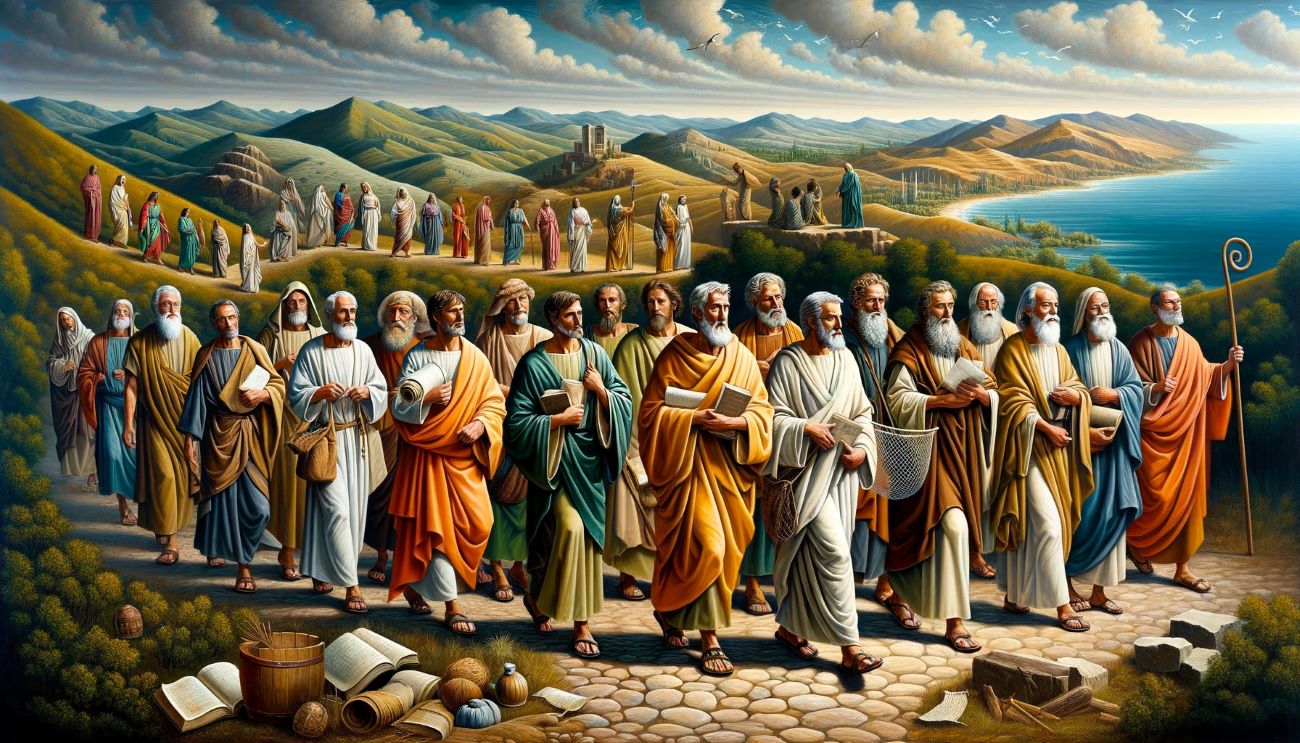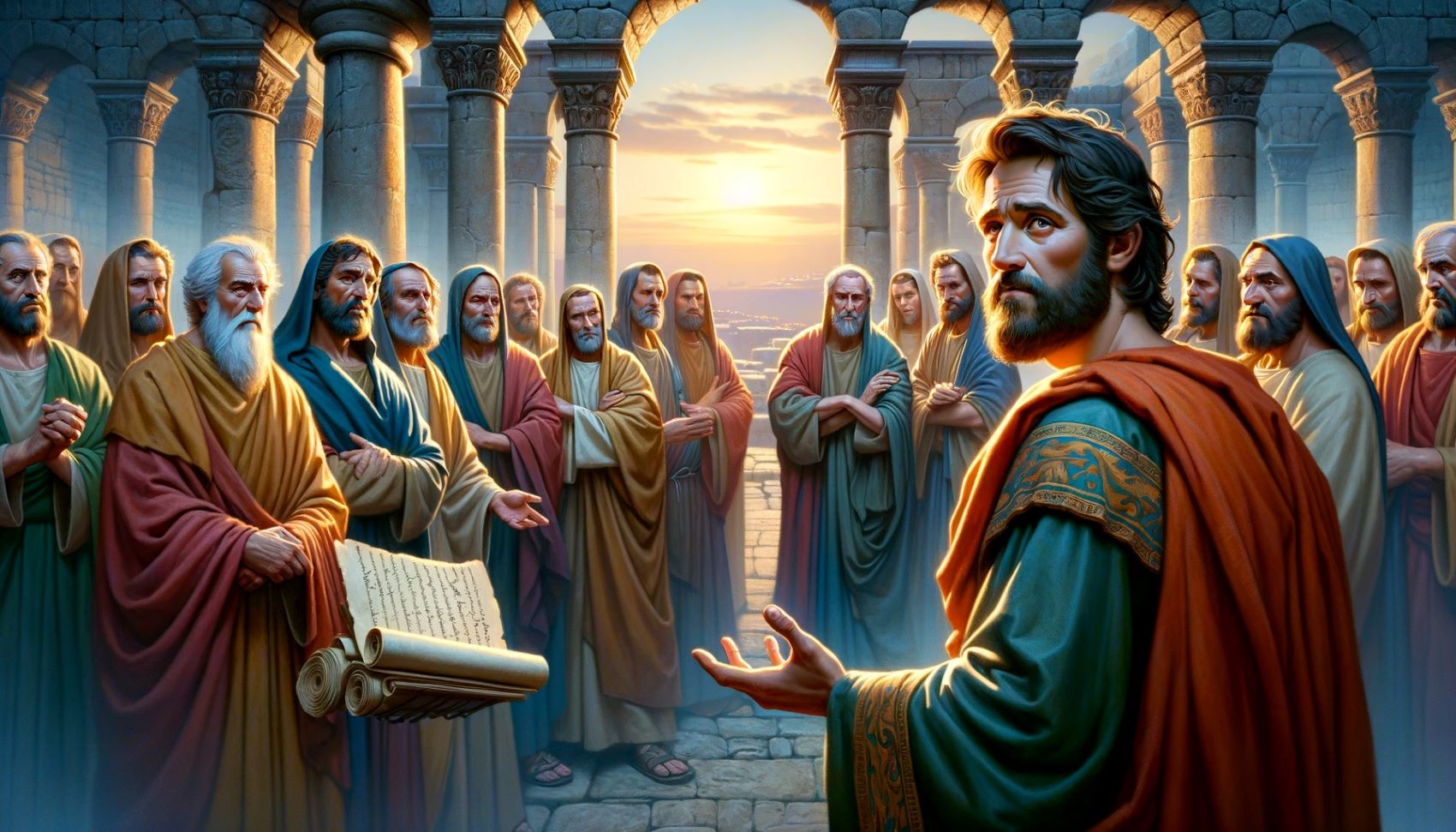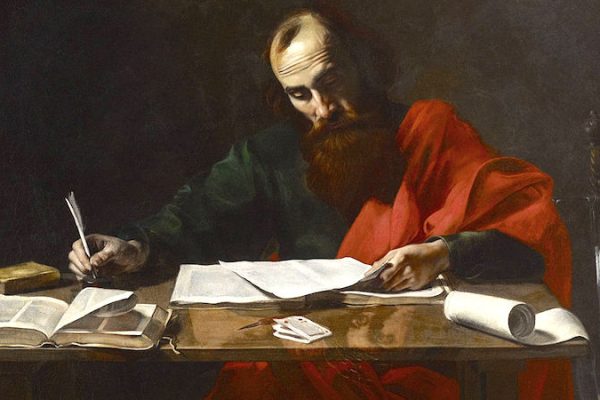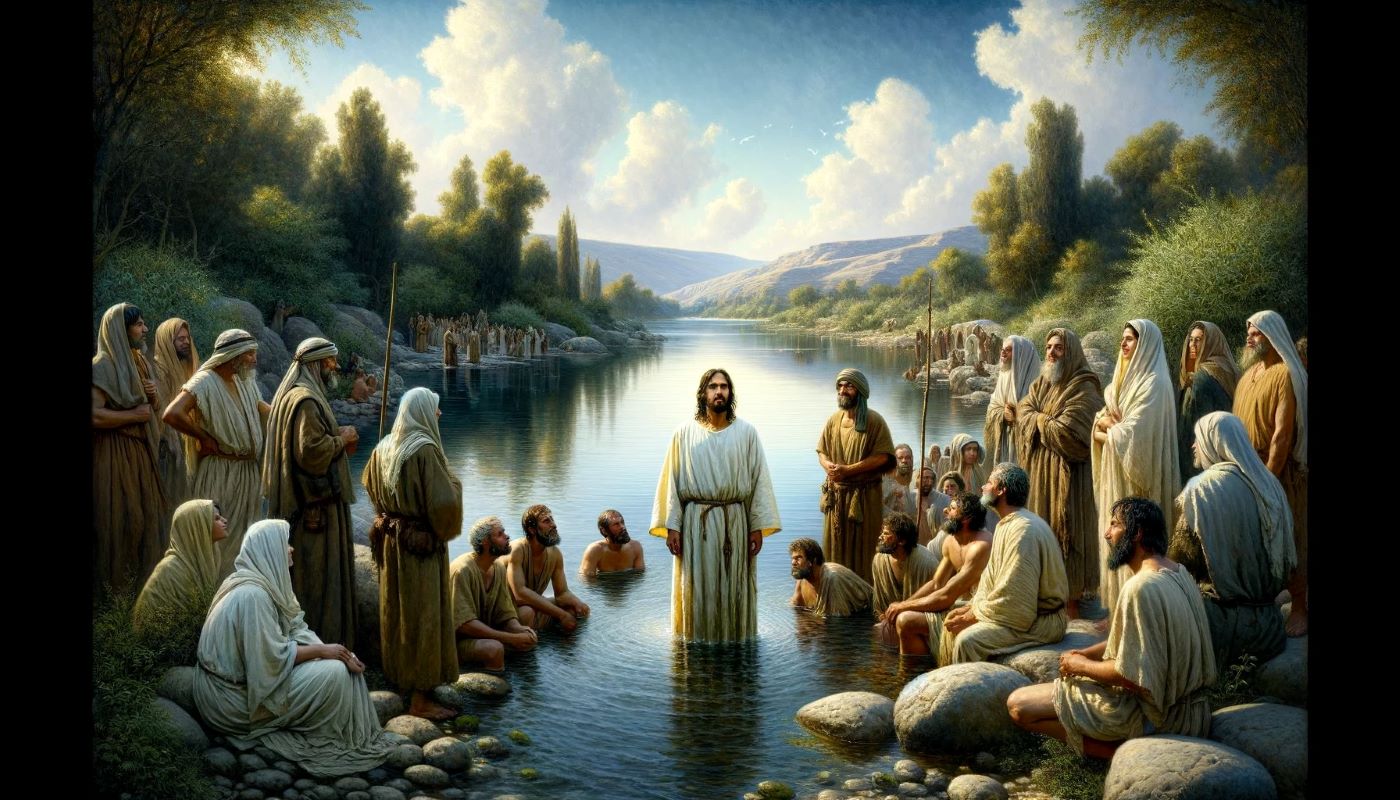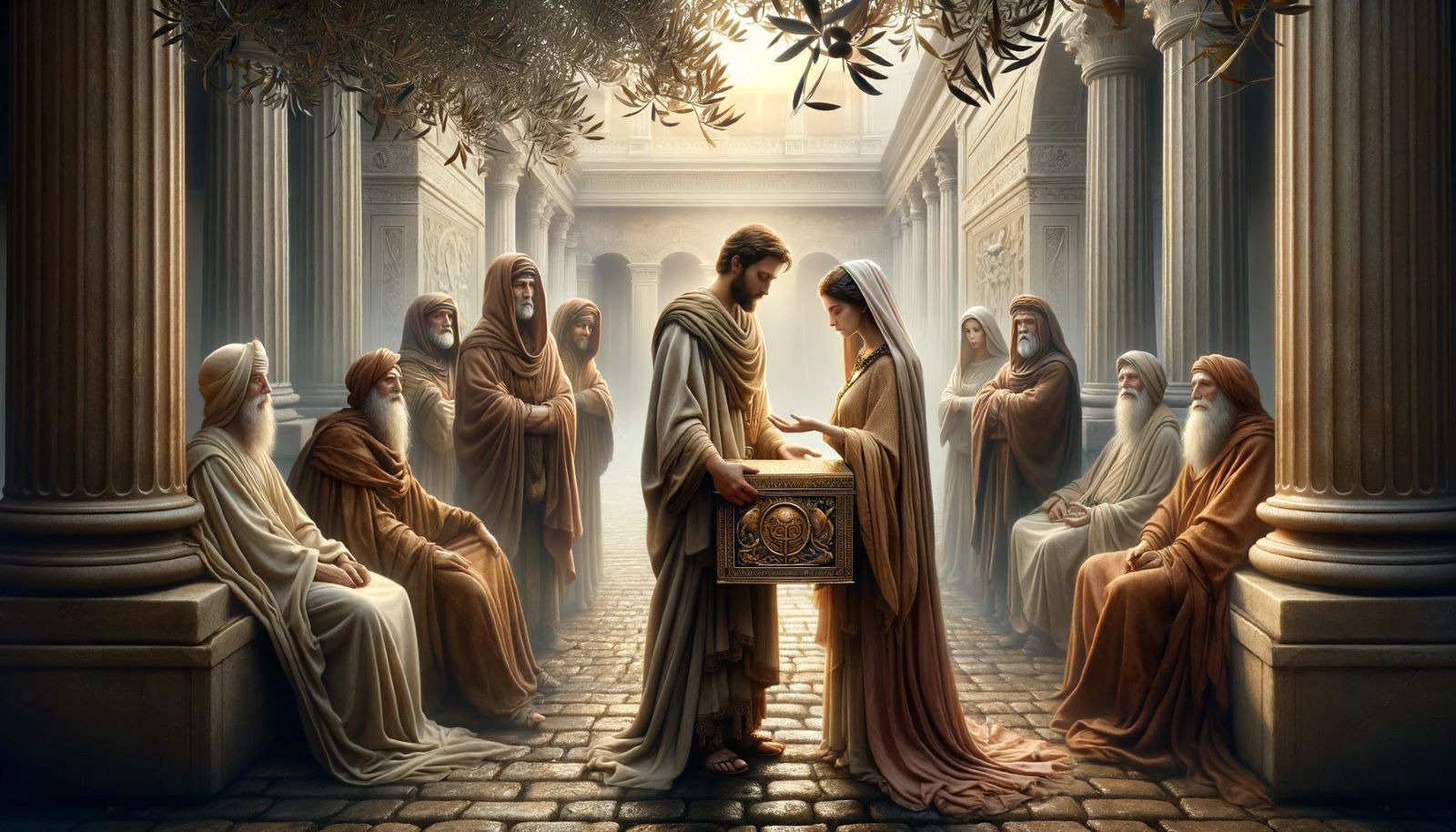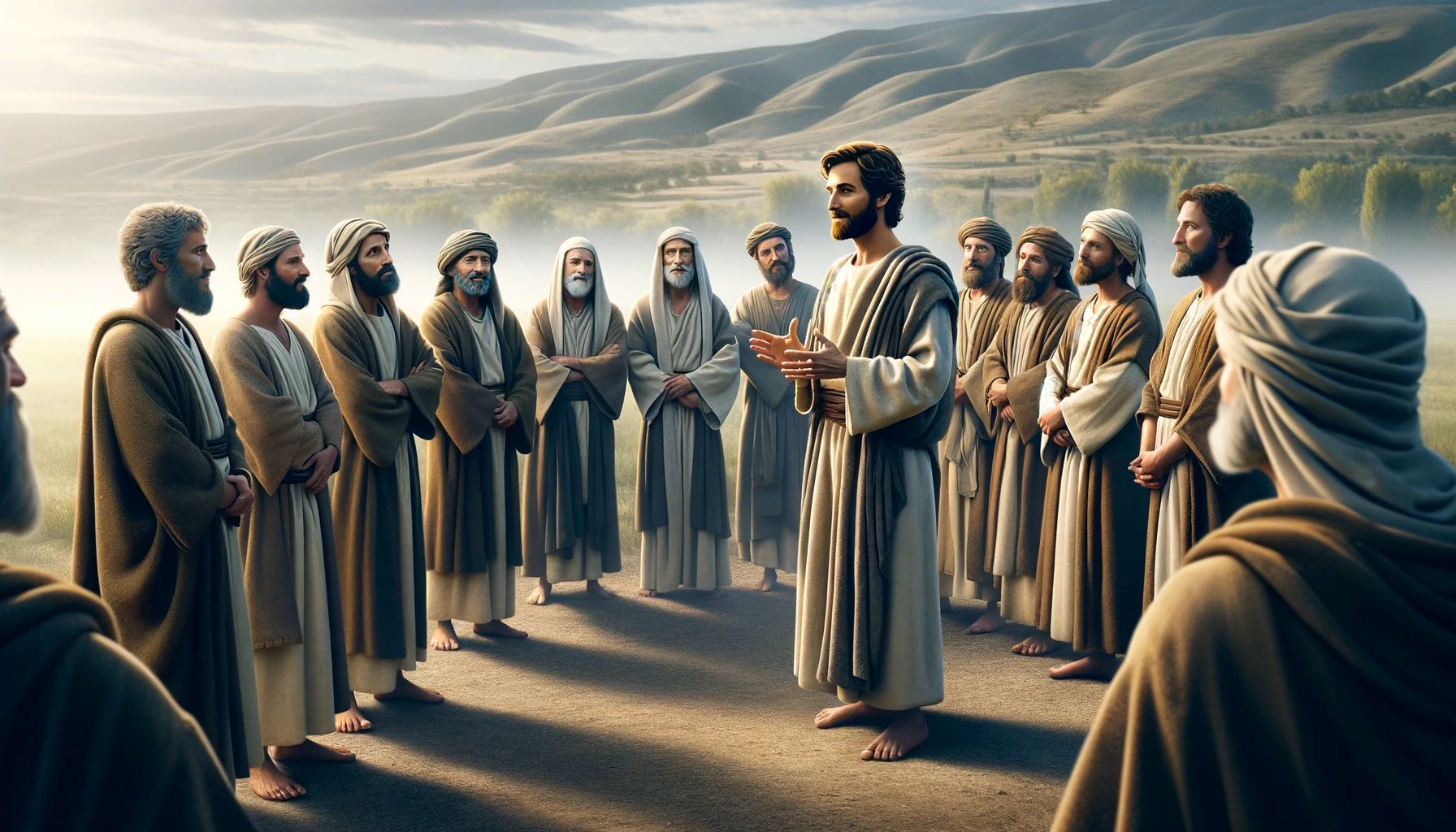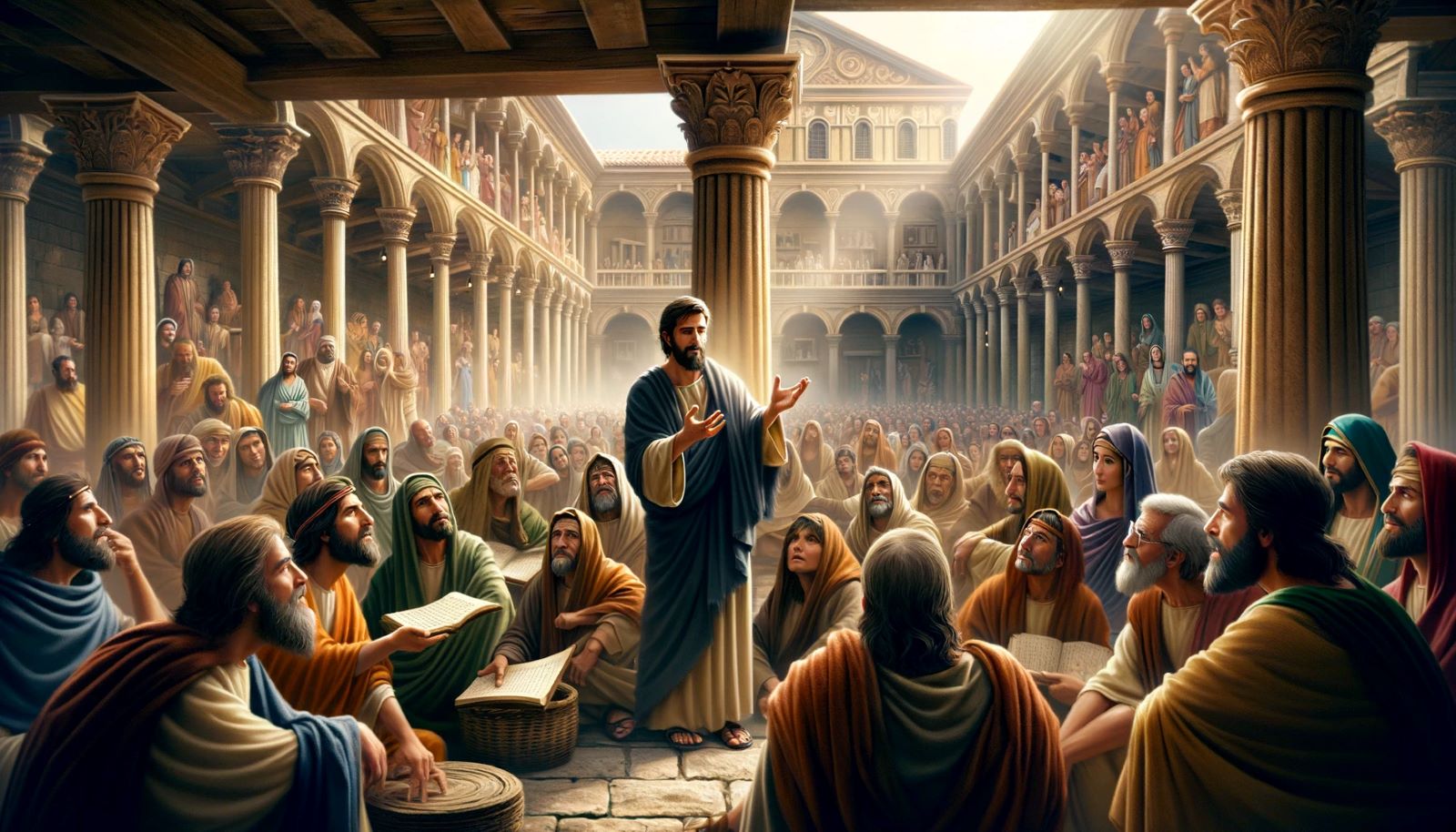Home>Bible Facts>Who Settled The Dispute Between Paul And The Original Apostles?
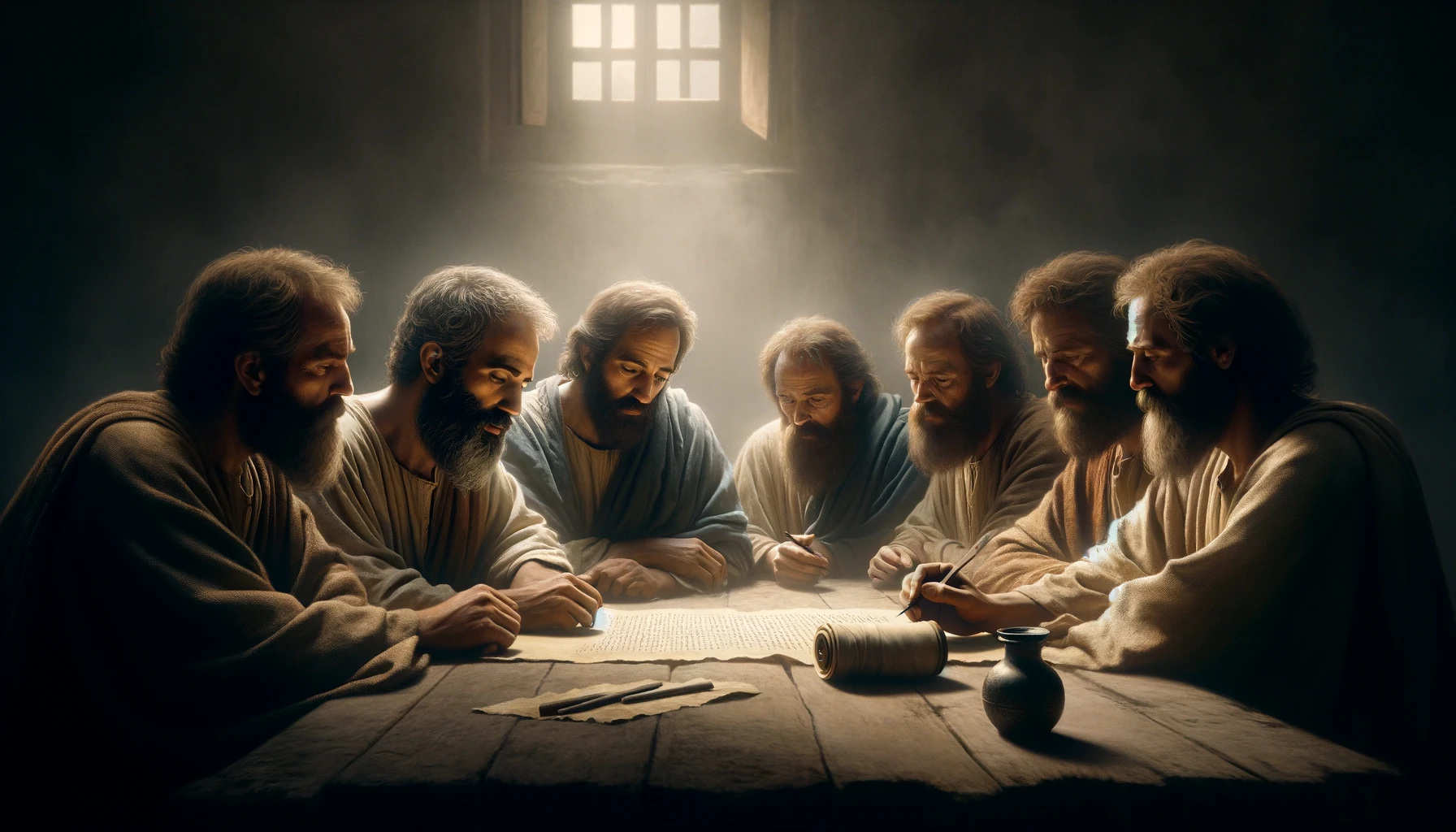

Bible Facts
Who Settled The Dispute Between Paul And The Original Apostles?
Published: February 22, 2024
Ericka Andersen, an editor at Christian.net, expertly merges digital strategy with content creation, focusing on faith and societal issues. Her communication skills enhance the platform's engaging narratives, fostering meaningful dialogue on belief's impact on society.
Discover the resolution of the dispute between Paul and the original apostles in the Bible. Uncover fascinating Bible facts and insights.
(Many of the links in this article redirect to a specific reviewed product. Your purchase of these products through affiliate links helps to generate commission for Christian.net, at no extra cost. Learn more)
Table of Contents
Introduction
The early Christian church was marked by fervent devotion and rapid expansion, but it was not without its internal conflicts and disputes. One of the most notable disputes occurred between the apostle Paul and the original apostles, which had significant implications for the future of Christianity. This conflict, rooted in differing perspectives on the inclusion of Gentile believers, required resolution to ensure the unity and coherence of the burgeoning Christian community.
The resolution of this dispute holds immense historical and theological significance, shedding light on the early development of Christian doctrine and the leadership dynamics within the early church. Central to the resolution of this conflict was the intervention of a key figure who played a pivotal role in reconciling the opposing viewpoints and fostering unity within the Christian community.
As we delve into the details of this significant event in early Christian history, we will uncover the complexities of the dispute, the individuals involved, and the decisive actions taken to bring about a resolution. This exploration will provide valuable insights into the dynamics of leadership, the process of conflict resolution, and the shaping of Christian theology in its formative years.
The Dispute Between Paul and the Original Apostles
The dispute between Paul and the original apostles stemmed from their differing perspectives on the inclusion of Gentile believers in the Christian community. Paul, a fervent advocate for the acceptance of Gentiles into the faith without adherence to Jewish customs, encountered resistance from the original apostles, who were initially hesitant about embracing Gentile converts without requiring them to observe traditional Jewish practices.
This fundamental disagreement created a rift within the early Christian community, with Paul advocating for a more inclusive approach to welcoming Gentile believers, while the original apostles held a more conservative stance, emphasizing the importance of adherence to Jewish customs and laws as a prerequisite for acceptance into the faith.
The clash of viewpoints led to tensions and divisions within the Christian community, raising critical questions about the nature of Christian identity, the relationship between the Jewish and Gentile believers, and the overarching principles that would define the burgeoning faith.
Amidst these tensions, the need for resolution became increasingly urgent, as the unity and coherence of the early Christian church hung in the balance. The resolution of this dispute would not only shape the trajectory of early Christian theology but also set a precedent for the inclusion of diverse cultural and religious backgrounds within the Christian faith.
The clash between Paul and the original apostles underscored the complexities of navigating cultural and religious differences within the context of a rapidly expanding faith. It also highlighted the challenges of reconciling divergent perspectives while upholding the core tenets of the Christian message.
As we delve deeper into the dynamics of this dispute and its eventual resolution, we gain valuable insights into the complexities of early Christian community dynamics, the evolving nature of Christian theology, and the pivotal role of leadership in fostering unity amidst diversity.
The Role of James in Settling the Dispute
Amidst the escalating tensions between Paul and the original apostles, James, the brother of Jesus and a prominent figure in the early Christian community, emerged as a key mediator in the resolution of the dispute. James held a position of considerable influence and respect within the Jerusalem church, and his role in navigating the delicate dynamics of the conflict was instrumental in fostering reconciliation and unity.
James' unique position as a familial figure to Jesus and a revered leader within the Jerusalem church endowed him with a nuanced perspective that allowed him to bridge the gap between the opposing factions. His leadership style was characterized by wisdom, discernment, and a deep commitment to preserving the unity of the Christian community.
Recognizing the gravity of the dispute and its potential to fracture the fledgling Christian movement, James assumed a central role in facilitating dialogue and understanding between Paul and the original apostles. His approach was marked by a spirit of humility and a genuine desire to seek common ground amidst the divergent viewpoints.
James' intervention was characterized by a balanced and empathetic stance, as he carefully listened to the concerns and convictions of both Paul and the original apostles. His ability to empathize with the perspectives of each party while upholding the overarching principles of Christian unity and love exemplified his astute leadership and diplomatic acumen.
Through his patient and empathetic mediation, James played a pivotal role in fostering reconciliation and mutual understanding. His unwavering commitment to preserving the integrity of the Christian community while embracing the diversity of its members set a profound example for future generations of Christian leaders.
James' legacy as a peacemaker and unifier within the early Christian church endures as a testament to the transformative power of humble leadership and the pursuit of unity amidst diversity. His role in settling the dispute between Paul and the original apostles stands as a poignant reminder of the enduring significance of fostering understanding and reconciliation within the Christian community.
In the next section, we will explore the pivotal gathering known as the Council of Jerusalem, which further contributed to the resolution of the dispute and the shaping of early Christian doctrine.
The Council of Jerusalem
The Council of Jerusalem stands as a pivotal gathering that played a decisive role in resolving the dispute between Paul and the original apostles, while also shaping the trajectory of early Christian doctrine. This significant assembly, held in the first century AD, brought together key leaders of the early Christian community to address the pressing issue of the inclusion of Gentile believers and the observance of Jewish customs.
At the heart of the Council of Jerusalem was the deliberation on whether Gentile converts to Christianity should be required to adhere to traditional Jewish practices, such as circumcision and dietary laws. This contentious issue had been a point of contention between Paul and the original apostles, and its resolution held profound implications for the future of the Christian faith.
The council convened with fervent discussions and impassioned debates, reflecting the gravity of the theological and cultural questions at stake. Amidst the deliberations, the voices of influential figures such as Peter, Paul, James, and other prominent leaders resonated within the assembly, each advocating for their respective positions with conviction and fervor.
The deliberations culminated in a momentous decision that marked a significant turning point in the early Christian movement. The council, guided by the wisdom and discernment of its participants, issued a groundbreaking decree affirming the inclusion of Gentile believers into the Christian community without imposing the obligations of Jewish ceremonial law upon them. This pivotal decision reflected a moment of profound theological insight and cultural sensitivity, affirming the universal scope of the Christian message and the inclusive nature of its community.
The outcome of the Council of Jerusalem not only resolved the immediate dispute between Paul and the original apostles but also established a foundational precedent for the inclusion of diverse cultural and religious backgrounds within the Christian faith. The council's decree reverberated throughout the early Christian world, shaping the contours of Christian theology and practice for generations to come.
The Council of Jerusalem stands as a testament to the transformative power of dialogue, discernment, and collective decision-making within the early Christian community. Its impact transcended the immediate resolution of a dispute, leaving an indelible mark on the evolving identity of the Christian faith and its embrace of diversity within unity.
In the next section, we will explore the enduring significance of the resolution of the dispute and its implications for the future of Christianity.
Conclusion
The resolution of the dispute between Paul and the original apostles stands as a pivotal moment in the early history of Christianity, bearing profound implications for the trajectory of Christian theology and the inclusive nature of the Christian community. The clash of perspectives, rooted in the inclusion of Gentile believers and the observance of Jewish customs, brought to the forefront critical questions about the identity and unity of the burgeoning Christian movement.
The role of James, the brother of Jesus, in mediating the conflict and fostering reconciliation exemplifies the transformative power of humble leadership and empathetic dialogue. His commitment to preserving the unity of the Christian community while embracing its diverse members serves as a timeless model for leaders navigating complex and divisive issues within the church.
The Council of Jerusalem, a momentous gathering that deliberated on the inclusion of Gentile believers, yielded a groundbreaking decree affirming the acceptance of Gentiles into the Christian community without imposing Jewish ceremonial laws upon them. This pivotal decision not only resolved the immediate dispute but also established a foundational precedent for the inclusive nature of the Christian faith, transcending cultural and religious boundaries.
The enduring significance of the resolution of the dispute lies in its affirmation of the universal scope of the Christian message and the embrace of diverse cultural and religious backgrounds within the Christian community. It set a precedent for the inclusive ethos of Christianity, emphasizing unity amidst diversity and the transformative power of dialogue and discernment.
The resolution of the dispute between Paul and the original apostles serves as a testament to the resilience and adaptability of the early Christian community in navigating complex theological and cultural challenges. It underscores the dynamic nature of Christian theology and the enduring relevance of fostering unity amidst diversity, resonating throughout the centuries as a guiding principle for the global Christian community.
In conclusion, the resolution of this significant dispute stands as a testament to the transformative power of dialogue, empathy, and collective discernment in shaping the identity and inclusive ethos of the Christian faith. It serves as a timeless reminder of the enduring significance of fostering unity amidst diversity, a principle that continues to resonate within the global Christian community.






